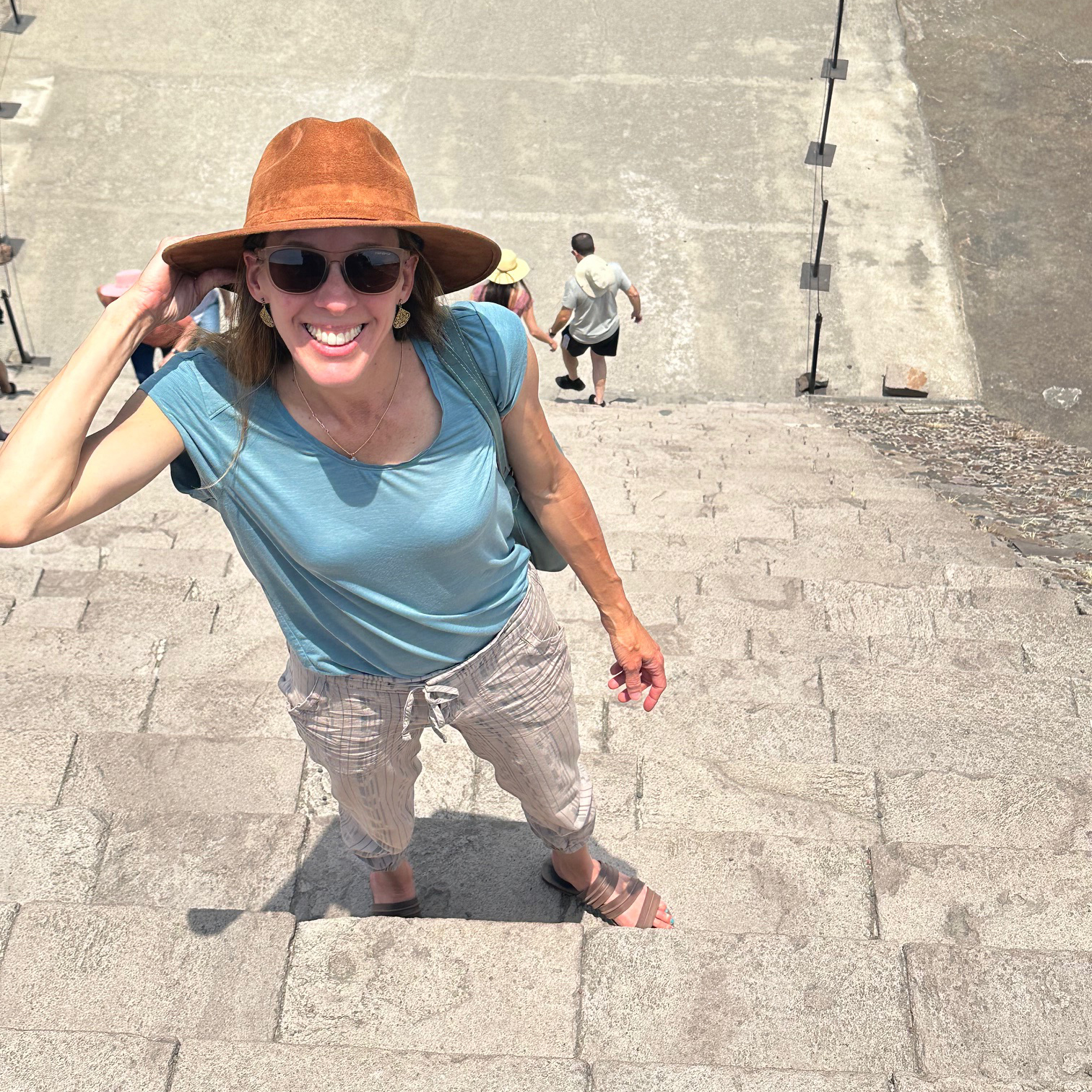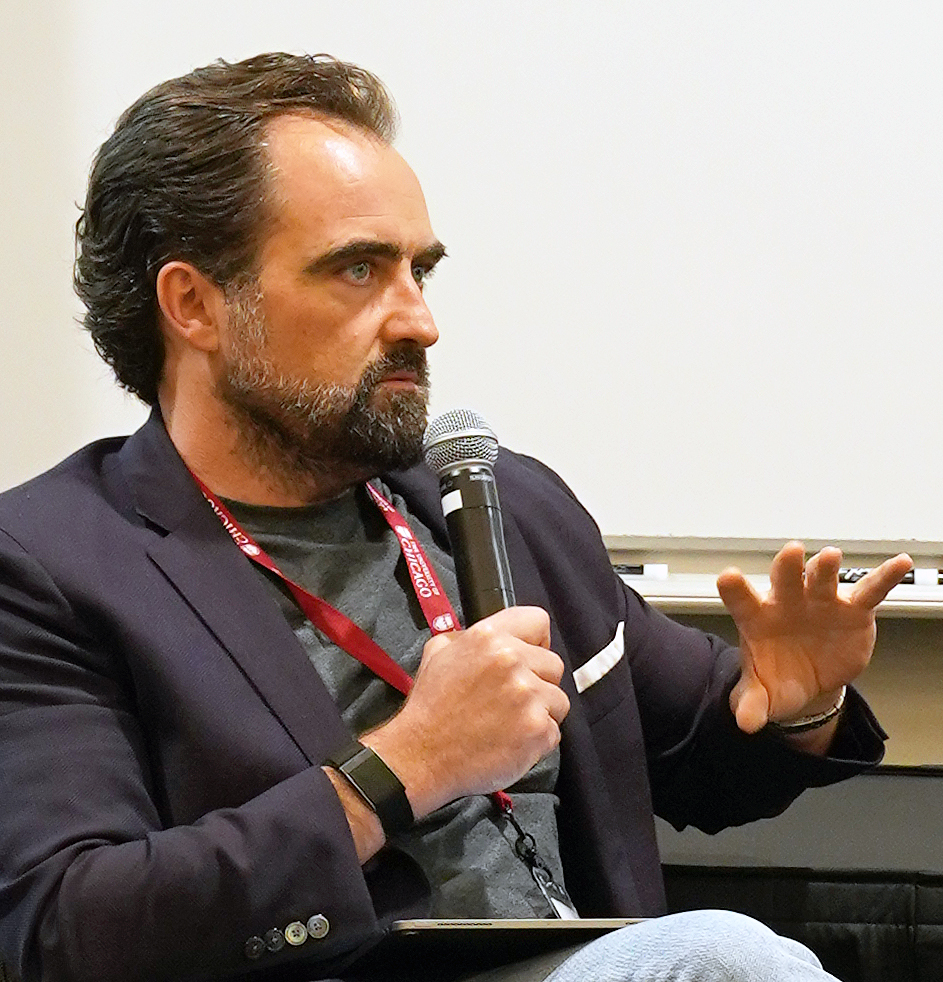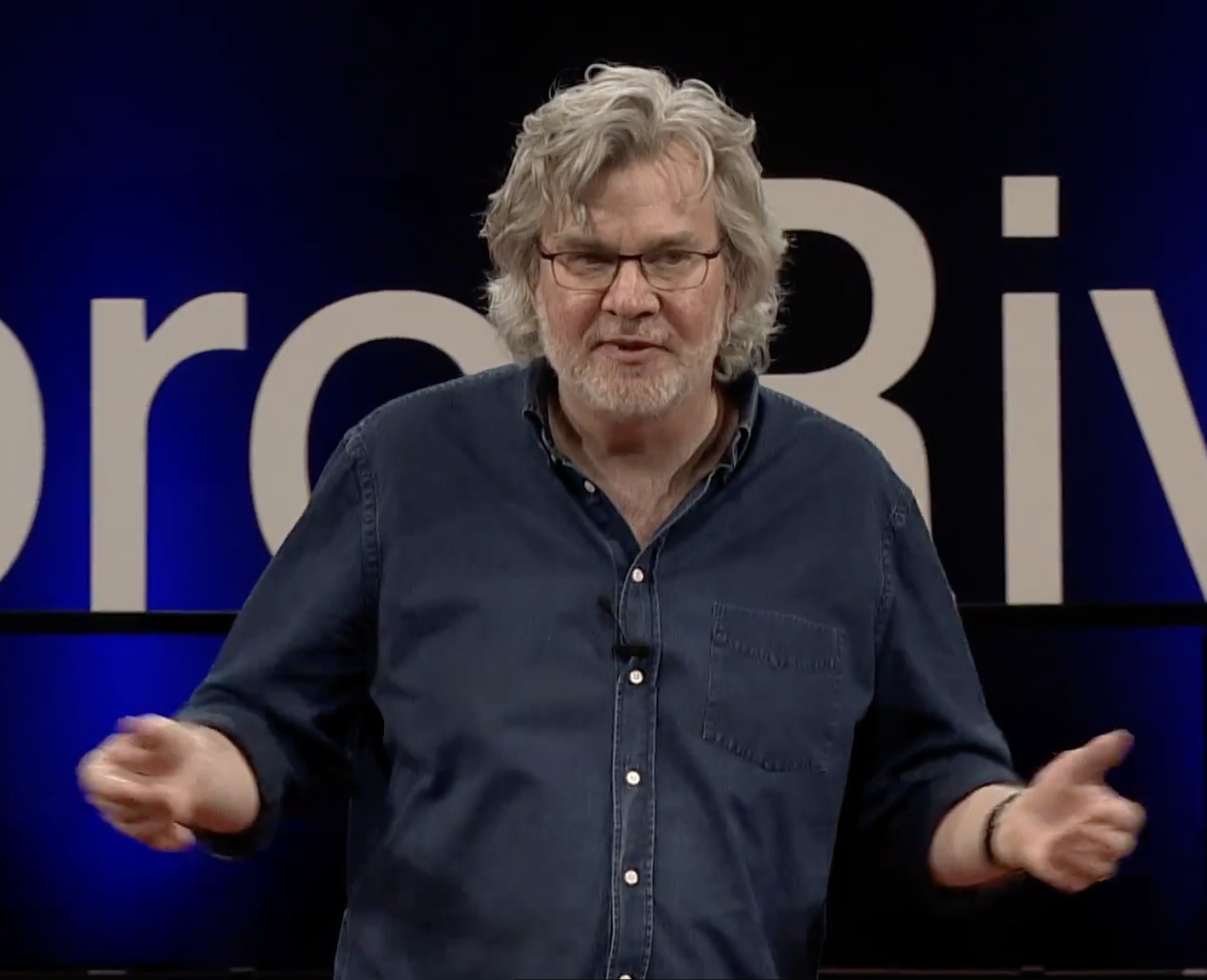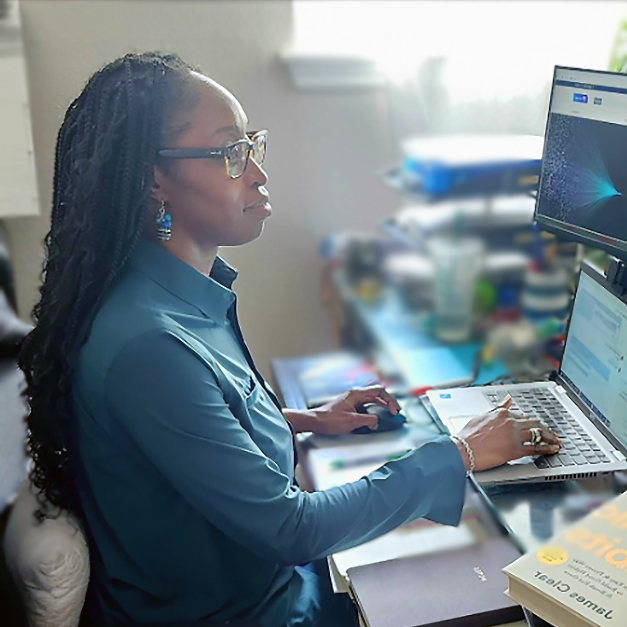An experienced science writer discovers intellectual renewal through UChicago’s Medical Writing and Editing certificate.
When DeLene Beeland shifted from writing university press releases to creating presentations about cutting-edge cancer diagnostics, she knew she’d found the professional challenge she’d been looking for.
“We were explaining how a diagnostic company could use blood samples instead of surgical biopsies to detect certain cancers,” Beeland recalls. “I was learning about detecting early relapses through liquid biopsies—it was fascinating, and completely different from anything I’d done before.”
This professional pivot didn’t happen by chance. After nearly a decade as a freelance science writer—during which she published a book—and then taking time away to start a family, Beeland returned to her career in 2019 with a fresh perspective and a gnawing realization: the work that once engaged her intellectually had lost its spark.
“I started asking myself, what can I do with my skill set?” she says. “I know how to read research papers, interview scientists, and translate complex topics for general audiences—but I needed something more challenging.”
A friend’s mention of medical writing sparked Beeland’s curiosity. Diving into the American Medical Writers Association (AMWA) forums, she discovered the University of Chicago’s Medical Writing and Editing certificate program. “I immediately saw that my skill set would work for patient education materials,” she recalls, even if she hadn’t yet grasped how the field would also expand her professional horizons.
Beeland encountered invigorating intellectual challenges throughout the program. The statistics course that initially intimidated her—“I thought it might prevent me from finishing the certificate!”—became a source of newfound confidence, particularly when working on cancer-related projects. Similarly, the tables and figures class transformed her approach to scientific literature.
“Despite years of reading scientific papers, I would always glide over those areas,” she admits. “In the course, I learned to pick apart the figures and read those first before the results or discussion to see the real nuggets of the paper.”
In the end, Beeland’s career evolution went beyond acquiring new skills; it involved reshaping her professional identity. Initially apprehensive about competing with clinicians with deep healthcare education and experience, she soon recognized the value she brought to medical writing as a skilled communicator.
“I saw that even though they had years of clinical education, they did not have my depth of experience with writing,” she explains. “My versatility and experience as a science writer and communicator gave me a unique advantage in the medical writing field.”
The freelancing course proved equally transformative for her business structure. “It was during the freelancing class that I decided to restructure as an LLC,” Beeland explains. She credits a former instructor with changing her approach to professional branding. “The instructor said something that really landed with me. She said, ‘You can do your own website, but people will know.’ I found a designer and paid to have a website done, and it made all the difference with getting clients.”
A key breakthrough came when Beeland responded to a science writer job posting with an editorial agency. “I mentioned I was taking these classes in the UChicago certificate program during the interview and it just so happened they were looking to grow their medical communications side,” she recalls. That became the connection that launched her into patient education slide decks and white papers for medical societies.
“I went from primarily writing articles to working with different formats and audiences,” Beeland explains. “Suddenly I was thinking more strategically about who would use these materials and how they would serve different purposes—from educating patients to helping secure venture capital funding for promising medical technologies.”
Her involvement with the program deepened after graduation when she joined the Student Advisory Board. “I wanted to give back to the program because it was so enriching for me,” Beeland explains. Over several years, she helped organize webinars on topics including inclusive language, freelancing best practices, and ethics in medical writing—sometimes as a speaker, other times as the organizer.
Beeland has become an instructor for the certificate program that transformed her career. “Today, I see the uncertainty and timidness in students that I recognize in myself from years ago, and I think that makes me relatable to a lot of students,” she says. “If I can help people overcome impostor syndrome and gain confidence, I’m giving back what others once gave me.”
Reflecting on her journey from science writer to medical communicator, Beeland emphasizes how the program served as her professional gateway. “The program paved the way to this entirely new area of writing,” she says. “It gave me skills, it gave me confidence—and it was definitely worth the investment.”





